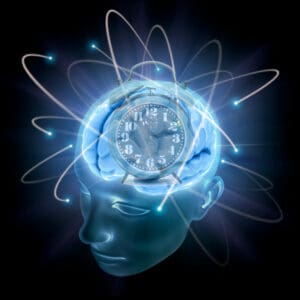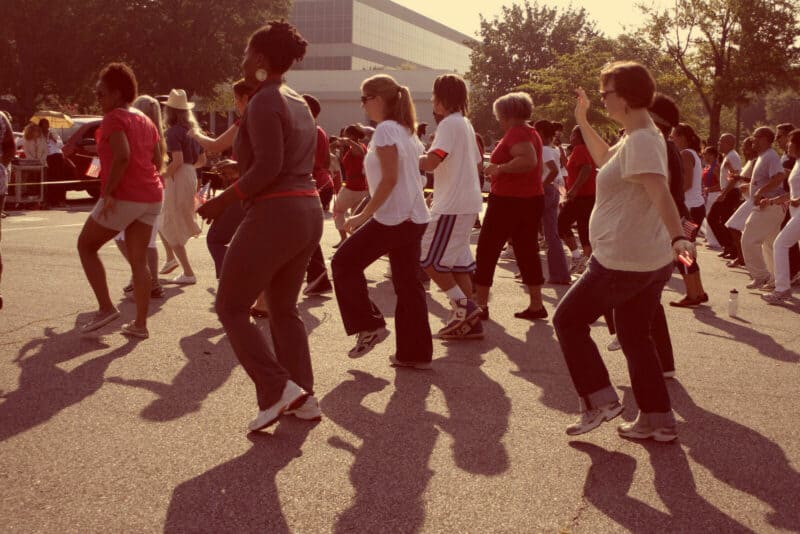The stress from COVID has made your brain age faster.
As a personal trainer, I’ve told clients not to worry about their chronological age. It is a number, a marker of the years since the day you were born. That’s not to say that it doesn’t matter at all. Of course, your chronological age should be taken into consideration, but don’t let it define what you are physically capable of doing. That is more likely to be defined by the state of your health, both physical and mental. Let’s explore that second aspect of your health; specifically, your brain.
 Last week a study was published in Biological Psychiatry: Global Open Science which showed that the COVID-19 pandemic appears to have caused poorer mental health and accelerated brain aging in adolescents.
Last week a study was published in Biological Psychiatry: Global Open Science which showed that the COVID-19 pandemic appears to have caused poorer mental health and accelerated brain aging in adolescents.
The study compared scans of pre-pandemic adolescent brains to that of teens at the end of 2020. Ian Gotlib, Director of the Stanford Neurodevelopment, Affect, and Psychopathology Laboratory, is lead author of the paper. The earlier set of scans were from a longitudinal study that began eight years ago, with the original goal of better understanding gender differences in depression rates among adolescents. The researchers recruited 220 children ages 9 to 13, with a plan to take MRI scans of their brains every two years. As they were collecting the third set of scans, the pandemic shut down all in-person research at Stanford, preventing the collection of brain scan data from March 2020 until late that year.
Their findings were that the youths assessed after the pandemic had more severe internalizing mental health problems, reduced cortical thickness, larger hippocampal and amygdala volume, and more advanced brain age. Said Gotlib, “We thought there might be effects similar to what you would find with early adversity; we just didn’t realize how strong they’d be.”
Reframing the aging discussion
Learning about and reviewing the report has me reframing how I would advise a client to consider age. I’ve always stressed the mind-body connection and the importance of mental health but considering how quickly the brain may change when confronted with extreme stress, if we are to give our attention to an age-related number, it should be to brain age.
Biological ageing is not tied absolutely to chronological ageing and it may be possible to slow biological ageing and even reduce the possibility of suffering from age related diseases such as dementia. — Ageing and the Brain, R. Peters, National Library of Medicine. Feb. 2006.
Normal aging means changes to the brain that slow cognitive function. The National Institute on Aging (NIA) reminds us that as a person gets older, changes to the brain are normal. Certain parts of the brain may shrink, affecting learning new things or completing complex tasks. In regions of the brain communication between neurons may not be as effective. Blood flow in the brain may decrease. Inflammation, which is the body’s response to an injury or disease, may increase. These changes can affect mental function even in healthy older adults. The good news is that there is growing evidence that the brain maintains the ability to adapt. Learning may take more time, but people can manage new challenges as they age.
Keep your brain young and healthy
Let’s give our brain what it needs to function at its best. Here are a few healthy habits for a healthy brain.
- Get off your bum. Sitting too much can thin the medial temporal lobe, the part of your brain responsible for memory, critical thinking, and information processing.
- Protect your hearing. Hearing loss is linked to brain aging and has been shown to be linked to dementia.
- Take care of your heart. Heart health affects brain health as your heart controls the flow of blood throughout your body, including to your brain.
- Don’t worry be happy. OK, I know it’s not that simple, but don’t let anxiety overtake you. Stress takes a huge toll on your brain. Researchers found that the risk of developing Alzheimer’s increased by 33 percent among people with mild anxiety, 78 percent for people with moderate anxiety and a whopping 135 percent for those with severe anxiety. So, learn to chill out.
- Move it. When fitness is your career, you hear all the time, “Why is exercise your answer to everything?” The simple answer, “It just is.” When it comes to your health, exercise is key. Here is just one way exercise affects your brain age; neurotransmitters are your brain-body connection.
The neurotransmitters most often discussed with regard to ageing are dopamine and serotonin. Dopamine levels decline by around 10% per decade from early adulthood and have been associated with declines in cognitive and motor performance. It may be that the dopaminergic pathways between the frontal cortex and the striatum decline with increasing age, or that levels of dopamine itself decline, synapses/receptors are reduced or binding to receptors is reduced. Serotonin and brain derived neurotrophic factor levels also fall with increasing age and may be implicated in the regulation of synaptic plasticity and neurogenesis in the adult brain. — Ageing and the Brain, R. Peters, National Library of Medicine. Feb. 2006.
Exercise and fitness make a difference
Exercise increases serotonin and dopamine in the brain. In 2018, the journal Neurology published results from a study that tested women’s fitness by studying their performance on stationary bikes. Researchers found those with “high cardiovascular fitness” had an 88 percent lower risk for dementia than a “moderately fit” group of women. Additionally, the study found that dementia symptoms began 11 years later in the “high fitness” group over the “medium fitness” group.
If you follow me on social media, you know that I favor dance fitness as my primary form of cardio. Lucky for my brain! The German Center for Neurodegenerative Diseases in Magdeburg found that although regular exercise can reverse the signs of brain aging, the most profound effect was among people who danced.
So, give your brain a sip from the fountain of youth and put on your favorite playlist and dance!
Contributing writer Denise Lum is a Health and Fitness Coach raising her family in Alameda. Contact her via [email protected] or FitnessByDsign.com. Her writing is collected at AlamedaPost.com/Denise-Lum/.




